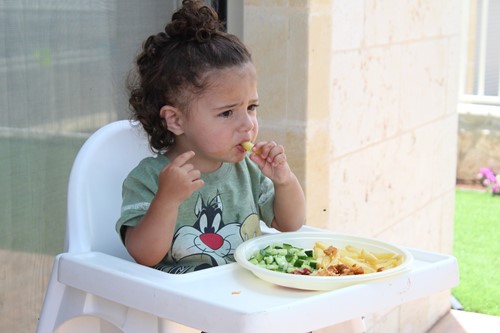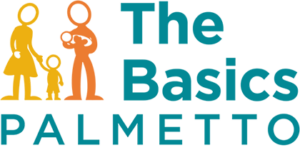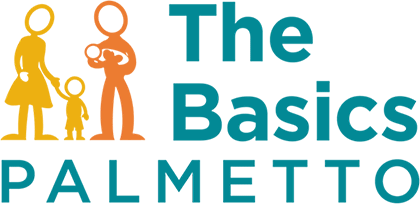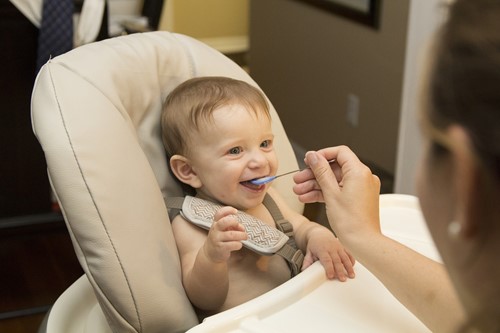Believe it or not, babies are born with ready brains for learning numbers, patterns, sizes, shapes, and comparisons. Using everyday moments, you can help your child build a healthy brain that’s prepared for problem-solving and math!
Here are 5 fun and simple ideas:
1. If you have a baby who is eating cereal or table food, count each bite as you feed them with a spoon.
Using a fun, sing-song voice as you count shows your baby that counting is fun!
2. As your child can feed himself finger foods like Cheerios, count out a certain number and put them in a group.
“Let’s count 5 Cheerios! 1 – 2 – 3 – 4 – 5!”
Counting individual items teaches your child that numbers correspond with objects.
3. Once your child understands that numbers represents objects, you can begin doing simple addition and subtraction.

“How many chicken nuggets are on your plate? That’s right, 5. If you eat 2, how many are left?”
“How many carrots will you have if I give you 1 more?”
They may not know the answers at first, but you can take this opportunity to point to the items and count with them.
4. Have fun with patterns and shapes at meal-time.
Create a simple pattern such as carrot, grape, carrot, grape. Then let you child create her own patterns with finger foods.
Meal-time is also a great opportunity to talk about shapes!
“What shape is your cracker?”
5. Teach comparisons such a big, small, heavy and light.
“Which piece of fruit is bigger? The apple slice or the strawberry.”
“What’s heavier, the banana or the apple?”
![]()
What are some of your favorite ways to make Basic #3, “Count, Group, and Compare” part of your daily routine?

80% of a child’s brain development happens in the first 3 years of life. Let’s seize the opportunity! The Basics are 5 fun, simple and powerful ways that every parent can give every child a great start in life!
Best of all, you can make the Basics part of your everyday family routines (like the mealtime examples above.)
Here are some resources that can help you on your journey:
- Watch this short video for encouraging ways that real parents are making “Count, Group, and Compare” part of everyday life. Click on the tips at the bottom of the page for Infants 0-12 months and Toddlers 12-24 months.
- 8 Simple Ways Your Child Can Become a Math Person
- Receive regular, FREE resources from The Palmetto Basics.
- Follow The Palmetto Basics on Facebook and Twitter. We provide encouraging, real-life, shareable content to help parents and caregivers!
- If you, your faith community, your organization, or your place of business would like to join us as a Champion for Children, contact us! palmettobasics@gmail.com.
Thanks for sharing this post and spreading the word to those within your circle of influence!

